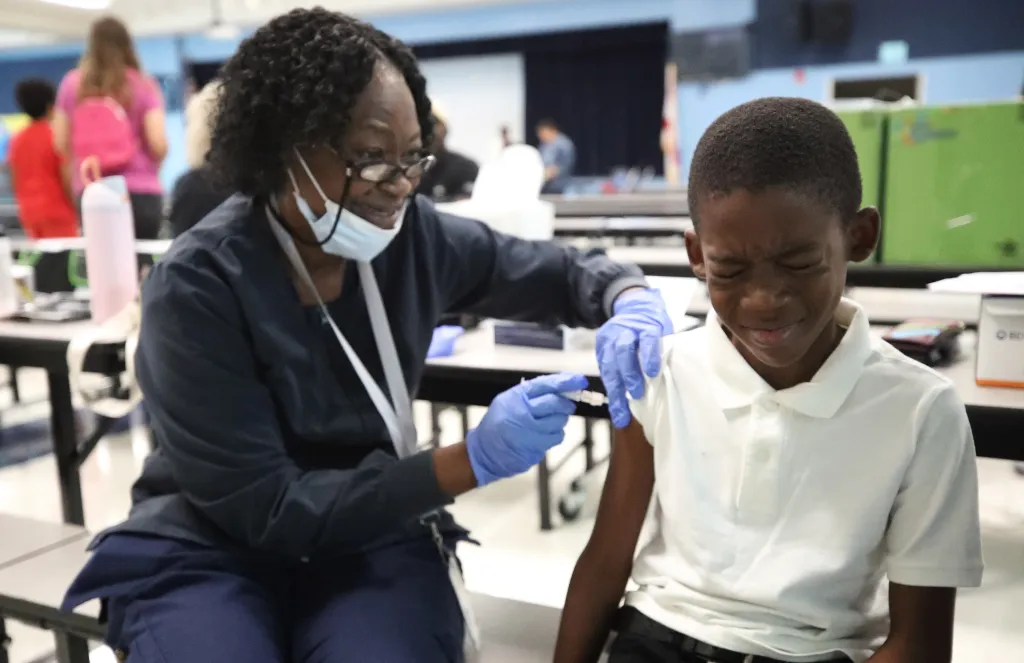
Recent discussions have brought back a dangerous and repeatedly debunked notion: that vaccines cause autism. This claim is not only false it creates a confusing and harmful message for parents and expectant parents. It’s crucial to look at the facts and the consensus from leading medical and scientific organizations.
For decades, extensive research in numerous countries has consistently found no credible link between lifesaving childhood vaccines and autism. Major medical organizations, such as the American Academy of Pediatrics and the American Psychiatric Association, have made it clear time and again that vaccines do not cause autism.
Delaying or spacing out vaccinations, as some suggest, is a dangerous practice. It leaves children vulnerable to serious, contagious diseases, like polio, measles and whooping cough, during periods when they are most at risk. Furthermore, separate vaccine appointments can be an unnecessary burden for families, particularly those with limited access to health care.
Autism is a complex, highly variable condition with a strong link to genetics. We know that it does not have a single cause and there is no “silver bullet” solution. Efforts to misrepresent sound scientific research on this topic are a threat to children’s health.
Beyond vaccines, there also has been confusion about a supposed link between acetaminophen (the active ingredient in Tylenol) and autism, particularly when used during pregnancy. The American Academy of Obstetricians and Gynecologists has stated that in over two decades of research, not a single reputable study has concluded that acetaminophen use during any trimester of pregnancy causes neurodevelopmental disorders in children.
One recent analysis identified a slight increased risk of autism associated with prenatal Tylenol use, but it’s critical to understand that this study did not demonstrate causation.
This research has been described as oversimplified, and its methodology has been criticized for being insufficiently broad and for not including the many studies that found no association.
The paper’s conclusions are stated very strongly, advising pregnant women to immediately limit acetaminophen use — even though the evidence is not strong at all.
It’s unfair and untrue to blame mothers who followed their doctors’ advice and safely took Tylenol during pregnancy for their child’s autism. Indeed, medical experts warn that untreated fevers, especially in the first trimester, can carry significant risks for both the mother and the developing fetus. Fevers are often a sign of an underlying infection, and treating the fever can help address the associated risks. Acetaminophen (Tylenol) is widely considered to be the safest and most effective medication for reducing fever during pregnancy.
The prevalence of autism has increased, but not at the explosive rate claimed by some.
The Centers for Disease Control and Prevention’s data shows a roughly fivefold increase in autism rates since 2000, not a tenfold or hundredfold increase. It is essential to work with precise and exact data when studying why autism rates are increasing.
We do need to better understand what causes autism. But getting to the bottom of complex issues like this requires scientific discipline and dedicated research, not simplistic, fabricated answers. Families with questions about their child’s medications or autism care should consult with their pediatrician or health care provider for accurate information.
Dr. Karen Smith is Sonoma County’s interim health officer and a former health officer of the state of California.



